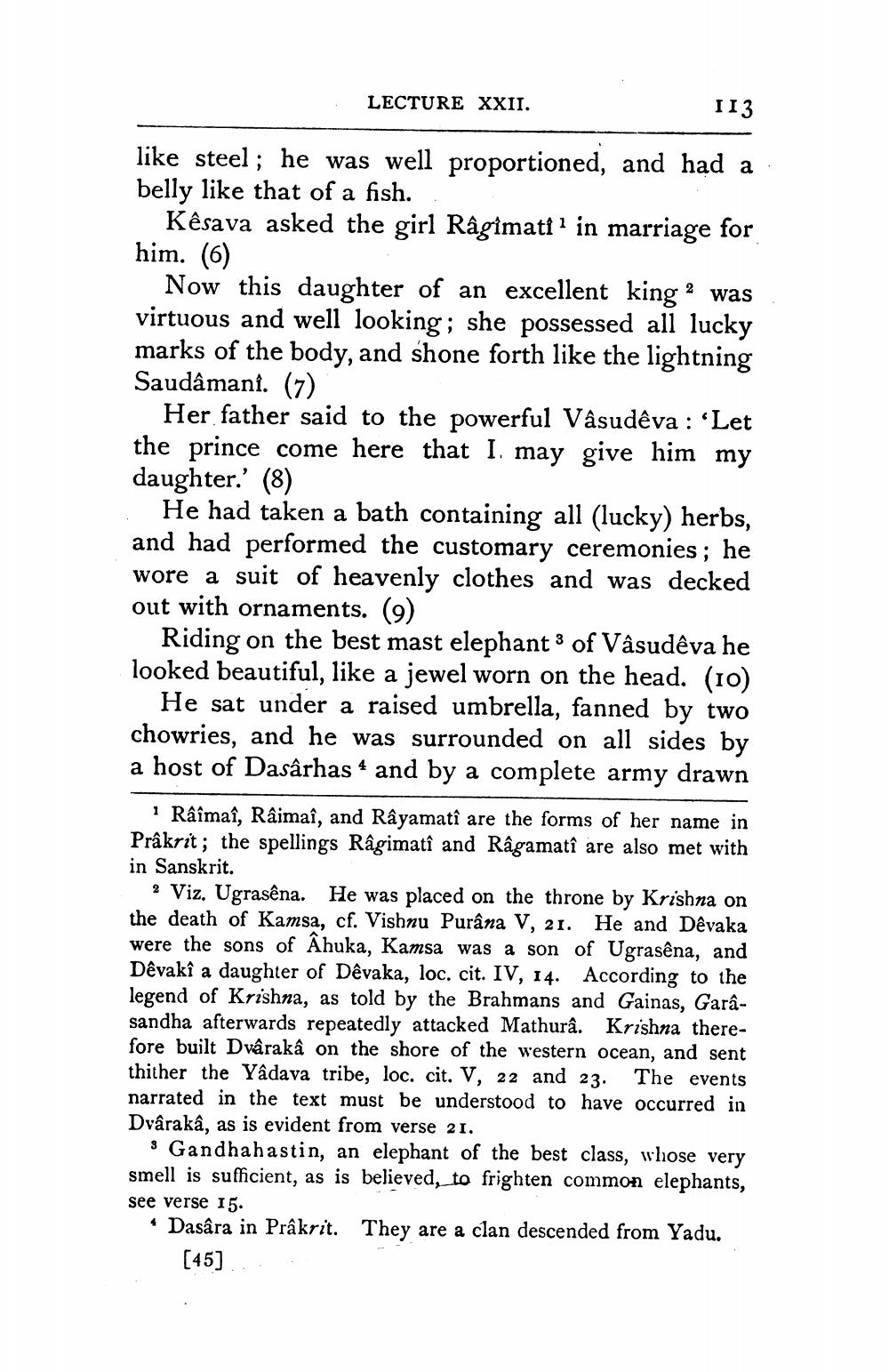________________
LECTURE XXII.
113
like steel; he was well proportioned, and had a belly like that of a fish.
Kêsava asked the girl Râgîmatii in marriage for him. (6)
Now this daughter of an excellent king 2 was virtuous and well looking; she possessed all lucky marks of the body, and shone forth like the lightning Saudâmani. (7)
Her father said to the powerful Vâsudêva : 'Let the prince come here that I may give him my daughter.' (8)
He had taken a bath containing all (lucky) herbs, and had performed the customary ceremonies; he wore a suit of heavenly clothes and was decked out with ornaments. (9)
Riding on the best mast elephant 3 of Vâsudêva he looked beautiful, like a jewel worn on the head. (10)
He sat under a raised umbrella, fanned by two chowries, and he was surrounded on all sides by a host of Dasarhas 4 and by a complete army drawn
1 Râîmai, Râimai, and Râyamatî are the forms of her name in Prâkrit; the spellings Râgimatî and Râgamatî are also met with in Sanskrit. - ? Viz. Ugrasêna. He was placed on the throne by Krishna on the death of Kamsa, cf. Vishnu Purâna V, 21. He and Dêvaka were the sons of Ahuka, Kamsa was a son of Ugrasêna, and Dêvakî a daughter of Dêvaka, loc. cit. IV, 14. According to the legend of Krishna, as told by the Brahmans and Gainas, Garasandha afterwards repeatedly attacked Mathurâ. Krishna therefore built Dvârakâ on the shore of the western ocean, and sent thither the Yâdava tribe, loc. cit. V, 22 and 23. The events narrated in the text must be understood to have occurred in Dvâraka, as is evident from verse 21.
3 Gandhahastin, an elephant of the best class, whose very smell is sufficient, as is believed, to frighten common elephants, see verse 15.
• Dasâra in Prakrit. They are a clan descended from Yadu.
[45]




